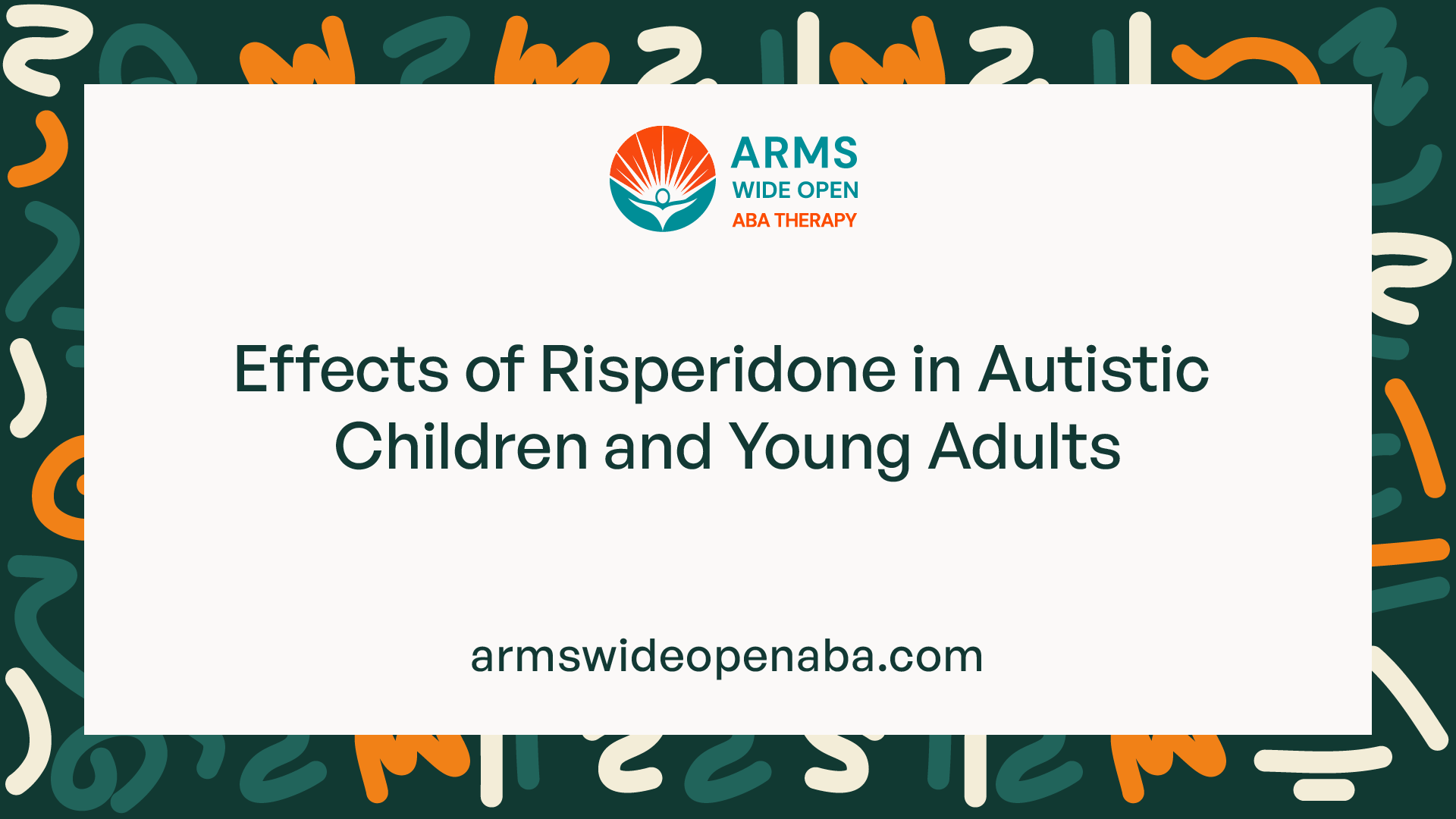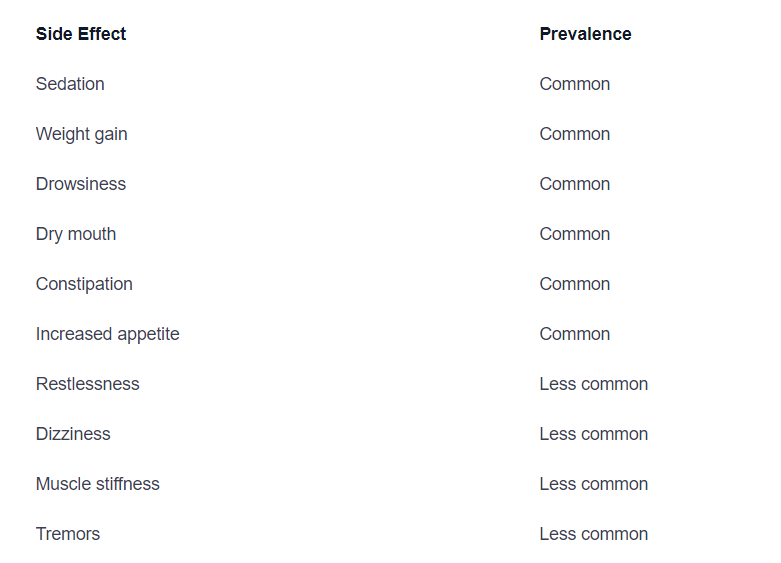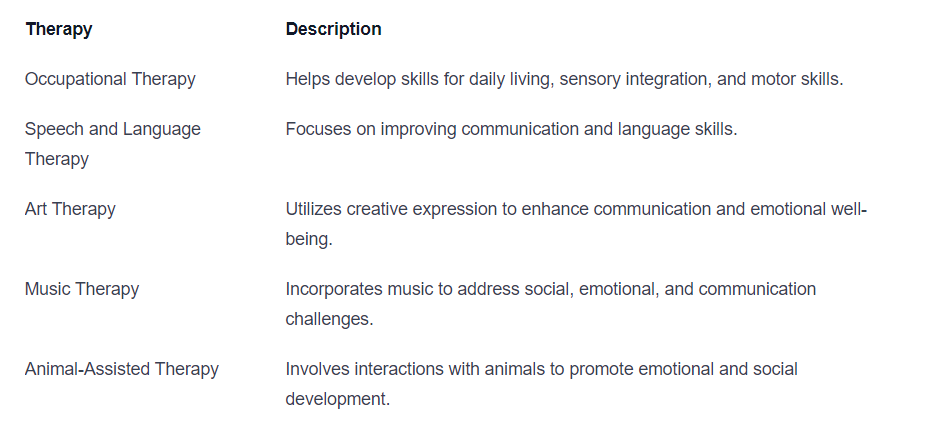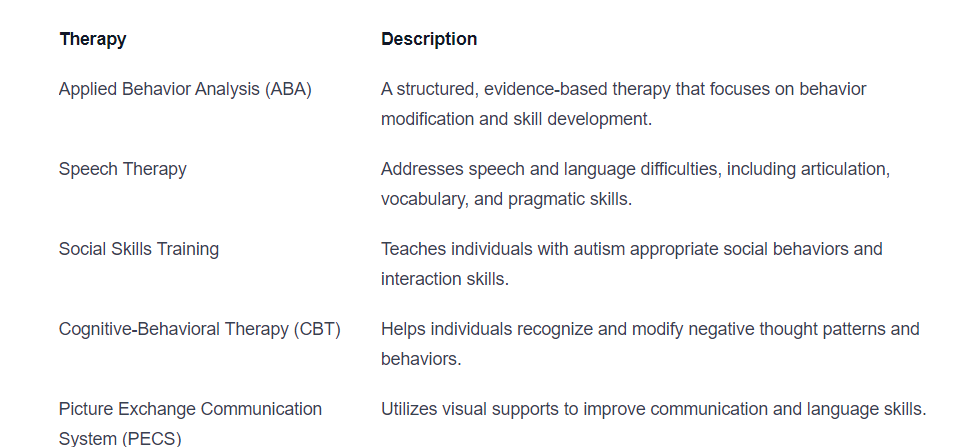Effects of Risperidone in Autistic Children and Young Adults
Unlock the powerful effects of risperidone in autism. Discover how it reduces aggression and improves social interaction.

Understanding Autism
Autism is a complex neurodevelopmental disorder that affects individuals across various age groups. To gain insight into the powerful effects of risperidone in autism, it is essential to first understand what autism is and the challenges faced by individuals with autism.

What is Autism?
Autism, also known as Autism Spectrum Disorder (ASD), is a condition characterized by difficulties in social interaction, communication, and restricted or repetitive behaviors. It is a spectrum disorder, meaning that it manifests differently in each individual. While some individuals with autism may have mild symptoms and lead independent lives, others may require significant support and assistance in their daily activities.
Challenges Faced by Individuals with Autism
Individuals with autism face various challenges that can impact their daily lives and overall well-being. Some of the common challenges include:
- Social Interaction Difficulties: Many individuals with autism find it challenging to engage in social interactions. They may struggle with understanding and interpreting social cues, making eye contact, and initiating or maintaining conversations.
- Communication Challenges: Communication difficulties are a hallmark of autism. Some individuals may have delayed speech or language development, while others may have difficulty understanding or using nonverbal communication such as gestures and facial expressions.
- Restricted and Repetitive Behaviors: Individuals with autism often display repetitive behaviors or intense interests in specific topics. They may engage in repetitive movements (such as hand-flapping or rocking), adhere to strict routines, or exhibit intense focus on a particular topic.
- Sensory Sensitivities: Many individuals with autism have heightened sensory sensitivities. They may be over- or under-responsive to sensory stimuli such as sounds, lights, textures, and tastes. These sensitivities can significantly impact their daily experiences and may lead to anxiety or discomfort.
Understanding the challenges faced by individuals with autism is crucial in identifying appropriate interventions and treatments, such as the use of risperidone. By acknowledging and addressing these challenges, we can strive to create a supportive and inclusive environment for individuals with autism.
Risperidone: An Overview
To understand the powerful effects of risperidone in autism, it is important to first have an overview of what risperidone is and how it works in the brain.
What is Risperidone?
Risperidone is an antipsychotic medication that is commonly prescribed to individuals with autism spectrum disorder (ASD). It belongs to a class of medications known as atypical antipsychotics. Risperidone is primarily used to manage symptoms associated with irritability, aggression, self-injurious behaviors, and other challenging behaviors commonly found in individuals with ASD.
Risperidone helps to regulate certain chemicals in the brain, specifically dopamine and serotonin, which play significant roles in mood, behavior, and cognition. By modulating these neurotransmitters, risperidone can help alleviate symptoms associated with aggression, self-injury, and other behavioral challenges in individuals with autism.
How Risperidone Works in the Brain
Risperidone works by blocking specific receptors in the brain, including dopamine D2 and serotonin 5-HT2A receptors. By binding to these receptors, risperidone helps to regulate the activity of these neurotransmitters, which can have a calming effect on individuals with autism.
The exact mechanism of action of risperidone is not fully understood. However, it is believed that the medication's ability to modulate dopamine and serotonin levels contributes to its therapeutic effects in autism. By reducing dopamine activity in certain areas of the brain associated with aggression and impulsivity, and enhancing serotonin activity in brain regions involved in mood regulation and social behavior, risperidone can help improve behavioral symptoms in individuals with ASD.
It is important to note that risperidone should be prescribed and monitored by a qualified healthcare professional who specializes in the treatment of autism spectrum disorder. The dosage and duration of treatment will vary depending on the individual's specific needs and response to the medication.
Understanding the overview of risperidone and how it works in the brain provides a foundation for exploring the powerful effects it can have on individuals with autism. In the following sections, we will delve into the specific effects of risperidone, considerations for its use, and alternative therapies and approaches for autism management.
The Effects of Risperidone in Autism
Risperidone, a medication commonly prescribed for individuals with autism, has been found to have powerful effects in managing certain symptoms associated with the disorder. Let's explore three key areas where risperidone has shown positive effects in individuals with autism.
Reduction of Aggressive and Self-Injurious Behaviors
One of the challenging aspects of autism is the presence of aggressive and self-injurious behaviors. Risperidone has been found to effectively reduce these behaviors in some individuals with autism. By targeting certain neurotransmitters in the brain, risperidone helps to regulate behavioral responses and decrease the frequency and intensity of aggressive and self-injurious behaviors.
It's important to note that the response to risperidone may vary from person to person. The dosage and effectiveness of the medication should be carefully monitored by a healthcare professional to ensure optimal results.
Improvement in Social Interaction and Communication
Social interaction and communication difficulties are common among individuals with autism. Risperidone has shown promise in improving these areas by reducing certain behavioral symptoms that may hinder social interactions. By targeting specific receptors in the brain, risperidone can help individuals with autism feel more at ease in social situations and enhance their ability to communicate effectively.
Studies have demonstrated that risperidone can lead to significant improvements in social interaction and communication skills. However, it is important to note that individual responses to the medication may vary, and a comprehensive treatment plan that includes behavioral therapies and individualized support is crucial for overall development.
Management of Repetitive and Stereotyped Behaviors
Repetitive and stereotyped behaviors, such as repetitive movements or fixations on certain objects, are common in individuals with autism. Risperidone has been found to be effective in managing these behaviors by targeting the underlying neurochemical imbalances associated with autism. By reducing the intensity and frequency of repetitive and stereotyped behaviors, risperidone can help individuals with autism focus on more meaningful activities and improve their overall quality of life.
It is important to note that risperidone is usually prescribed as part of a comprehensive treatment plan that may include other therapies and interventions. The decision to use risperidone should be made in consultation with a healthcare professional who can carefully assess the potential benefits and risks for each individual.
While risperidone has shown promising effects in managing certain symptoms of autism, it is essential to consider individual needs and potential side effects. Regular monitoring and ongoing evaluation are necessary to ensure the medication's effectiveness and to address any potential concerns. A holistic approach that combines medication with behavioral and communication therapies can provide individuals with autism the best opportunity for growth and development.
Considerations and Potential Side Effects
When considering the use of risperidone in the treatment of autism, it's important to be aware of certain considerations and potential side effects. Understanding these factors can help individuals, caregivers, and healthcare professionals make informed decisions regarding its use.
Dosage and Monitoring
The dosage of risperidone should be carefully determined by a healthcare professional based on the specific needs of the individual with autism. It is typically administered in a low dose initially, which may be gradually increased if necessary. Regular monitoring is essential to assess the effectiveness of the medication and evaluate any potential side effects.
Monitoring may involve regular visits to the healthcare provider to evaluate the individual's response to the medication. This can include assessing changes in behavior, monitoring weight and metabolic parameters, and conducting routine blood tests to ensure the medication is well-tolerated.
Common Side Effects of Risperidone
While risperidone can be beneficial in managing certain symptoms of autism, it may also be associated with some common side effects. These side effects can vary in severity and may affect individuals differently. It's important to discuss these potential side effects with a healthcare professional and weigh the benefits against the risks.
Some common side effects of risperidone in individuals with autism may include:

It's important to note that not all individuals will experience these side effects, and some may experience different or additional side effects. Close monitoring and regular communication with a healthcare professional can help manage any side effects that may arise.
Long-Term Effects and Research Limitations
While risperidone has shown positive effects in managing certain symptoms of autism, the long-term effects of its use in this population are still being studied. It is important to note that every individual may respond differently to the medication, and the long-term effects may vary.
Research limitations also exist in this area. Many studies have focused on short-term outcomes, and there is a need for more research to better understand the long-term effects, especially in children and young adults. Additionally, individual factors, such as age, genetics, and other medical conditions, can influence the response to risperidone.
It's important to have open and ongoing discussions with healthcare professionals to weigh the potential benefits and risks of risperidone treatment for autism. This collaborative approach ensures that the treatment plan is tailored to the individual's specific needs and considers all potential considerations and side effects.
Other Therapies and Approaches for Autism
While risperidone has shown powerful effects in managing certain symptoms of autism, it is essential to consider other therapies and approaches that can complement the treatment plan for individuals with autism. These therapies aim to address a wide range of challenges faced by individuals on the autism spectrum. Some of the commonly used therapies include complementary therapies and behavior and communication therapies.
Complementary Therapies
Complementary therapies are often used alongside traditional medical treatments to support individuals with autism. These therapies focus on holistic approaches and aim to improve overall well-being. While the effectiveness of complementary therapies may vary from person to person, many individuals and families have reported positive outcomes. It is important to note that these therapies should always be used under the guidance of qualified professionals.
Some common complementary therapies for autism include:

Behavior and Communication Therapies
Behavior and communication therapies are fundamental in addressing the core symptoms of autism. These therapies aim to improve social interaction, communication skills, and adaptive behaviors. Behavior therapy focuses on identifying and modifying behaviors, while communication therapy targets language and communication difficulties. Both these therapies can be highly effective in helping individuals with autism reach their full potential.

Importance of Individualized Treatment Plans
It is crucial to recognize that each individual with autism is unique, and their treatment plan should be tailored to their specific needs. The effectiveness of different therapies may vary depending on the individual's strengths, challenges, and preferences. A comprehensive and individualized treatment plan often involves a combination of various therapies, including medical interventions, complementary therapies, and behavior and communication therapies.
By considering a range of therapies and approaches, individuals with autism can receive comprehensive support to address their specific challenges and enhance their overall quality of life. The collaboration of professionals, caregivers, and individuals with autism is key in developing and implementing a personalized treatment plan that maximizes outcomes and promotes the well-being of those on the autism spectrum.
Sources
https://www.ncbi.nlm.nih.gov/pmc/articles/PMC8206457/
https://www.spectrumnews.org/news/risperidone-use-in-children-with-autism-carries-heavy-risks/
https://childmind.org/article/what-parents-should-know-about-risperdal/
Similar articles
We’re here to help you

Our team is here to assist you in this process. Contact us for any assistance.
it’s easy to apply
We Accept Most Insurances
Our in-network insurance partnerships make ABA therapy more accessible to families throughout our service areas.







Our Insurance Process
We'll request your insurance details to help us verify your plan's coverage for ABA therapy. Once we've received this information, we'll walk you through your benefits, including copayments, deductibles and out-of-pocket maximums, so you know what to expect in advance.
Our team will then handle the preauthorization and all the necessary paperwork.
.svg)





















.jpeg)


































.jpeg)




.jpeg)







.jpeg)











.jpeg)
















